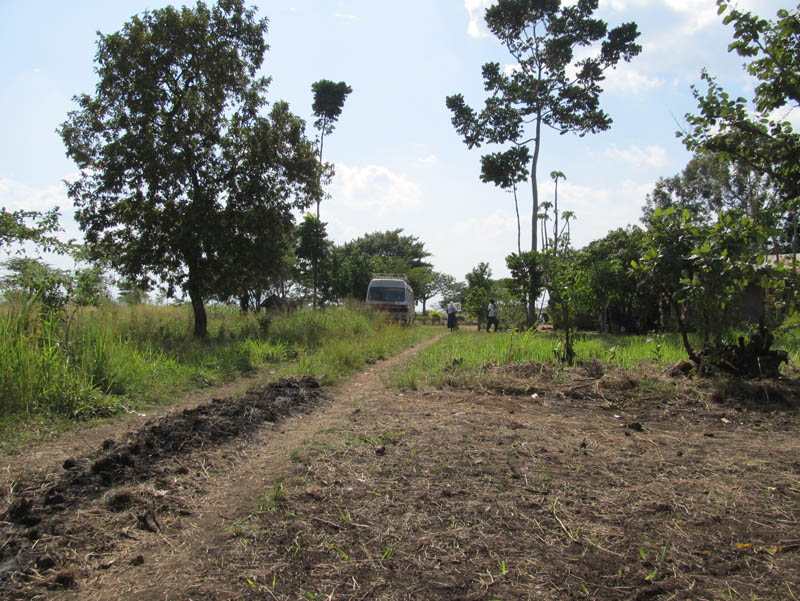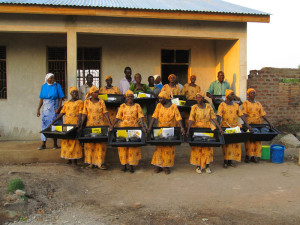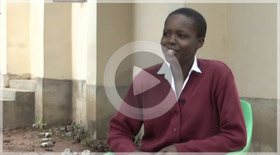Project Location: Kitenga, Tanzania
In the coming year, Solar Liberty Foundation plans to install solar energy systems on the following in Kitenga, Tanzania:
- A dormitory at a secondary school for girls
- A science lab at a secondary school for girls
- The Alice Kryzan Memorial Library
- A health clinic
- The Residence of the Immaculate Heart Sisters of Africa

Kitenga, a rural village in the Mara region of Tanzania, is home to approximately 7,500 individuals. Due to its remote location, the village faces a plethora of challenges: health services are inadequate; educational and economic opportunities are limited; clean water and healthy food are in short supply; vast deforestation has compromised the land; and infrastructure (roads, water and power) is largely underdeveloped. Like many rural villages in less developed nations, Kitenga is not connected to the country’s electrical grid. At approximately 6:00 p.m. every evening, the sun sets and the village falls into complete darkness.
However, thanks to the Immaculate Heart Sisters of Africa, an inspiring order of Tanzanian nuns serving the Mara region, revolutionary change is underway in Kitenga. To date, the Immaculate Heart Sisters have worked to establish vocational training, a grist mill and a health center in Kitenga. With the help of Buffalo Sunrise Rotary Club, they have also established a deep bore well to bring clean water to the villagers.
To advance the efforts of the Immaculate Heart Sisters and further address the village’s extensive needs, Solar Liberty Foundation has committed to bringing the community renewable energy.
In January 2011, Solar Liberty Foundation sent twelve solar cookers to the women of Kitenga. The women were so thrilled to receive the cookers that they sewed matching outfits to wear on the day of delivery.
Shortly after distributing the cookers, we received a letter from Sister Lucy, of the Immaculate Heart Sisters. She explained, “You can not believe how thrilled they are about the heavy load you have you have taken away from their shoulders. They feel very much relieved, they are so happy and they wish everybody in the village gets the cookers, but we have so many women. They continue inventing new recipes and ways of cooking”.
Though great strides have been made, Kitenga continues to suffer from a lack of educational opportunity, specifically for girls. As a result of gender inequalities, females in Tanzania rarely receive an education. Without an education, girls, specifically in the Mara region, are likely to be married at age 13 and trapped into a life of absolute poverty. In addition to forced marriage, many girls in Kitenga continue to fall victim to other cultural practices, such as female genital mutilation.
Recognizing the importance of education, the government of Tanzania has authorized the development of a boarding school for girls in Kitenga Village. The school, which will be under the leadership and management of the Immaculate Heart Sisters, is anticipated to eventually enroll 1,500 students in grades pre-K through secondary. The sisters have expressed a deep commitment to educating and protecting the girls most vulnerable to dangerous cultural practices.
In the coming year, partner organization, Girls Education Collaborative, plans to push ahead with construction on the school. Upon Phase I completion, the campus will provide the following amenities: a dormitory with toilets, a science center, a kitchen, administrative offices, classroom latrine, teachers’ housing, a guard house and a library in memory of Alice Kryzan, environmental activist, former congressional candidate, and highly respected Buffalo community member.
The presence of off-grid, renewable energy will play a vital role in advancing the efforts of our partners. In order to become fully-functional, the campus and the health clinic will require electricity. Due to its remote location, the electrical grid does not reach Kitenga.
The incorporation of solar energy will allow the dormitory to ensure the safety of the girls and enable the use of electronic devices; the science center to power laboratory equipment, lights, a small refrigerator and ceiling fans; the library to connect to the Internet, extend study hours and serve as a replicable “green” literacy center; the health clinic to refrigerate medication, power a communication system and modern medical equipment, and provide lighting for nighttime emergencies and births; and drastically improve the Sisters’ quality of life.
To power the Kitenga Village Project, please click here.
We will continue to update this project as it progresses. For more pictures, click here.









